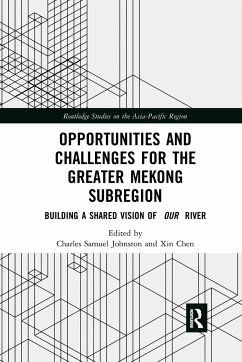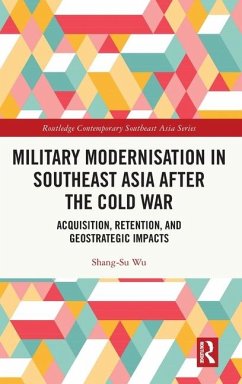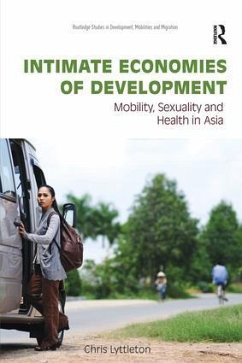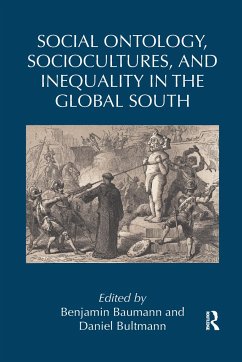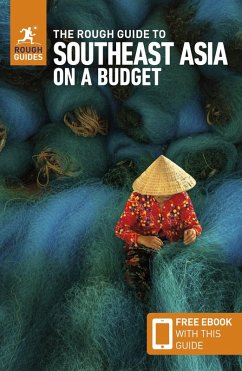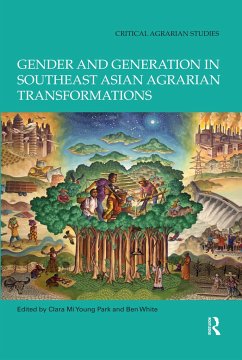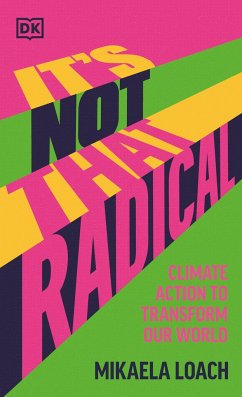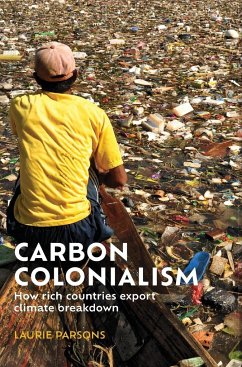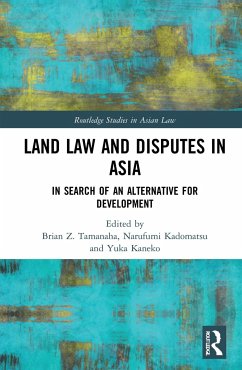Brian Eyler (USA Stimson Center)
Broschiertes Buch
Last Days of the Mighty Mekong
Versandkostenfrei!
Versandfertig in über 4 Wochen
Weitere Ausgaben:

PAYBACK Punkte
9 °P sammeln!





A vivid account of how one of the most remote and naturally beautiful areas in the world is being wholly transformed by rapid industrial and urban development, the scale of which has never been seen before.
Brian Eyler is the director of the Stimson Center's Southeast Asia Program in Washington, DC. Previously, he directed study abroad centres in Beijing and Kunming, China for IES Abroad and led numerous study tours throughout the Mekong region.
Produktdetails
- Asian Arguments
- Verlag: Durnell NBN / Zed Books
- Seitenzahl: 384
- Erscheinungstermin: 15. Februar 2019
- Englisch
- Abmessung: 216mm x 136mm x 32mm
- Gewicht: 424g
- ISBN-13: 9781783607198
- ISBN-10: 178360719X
- Artikelnr.: 51986225
Herstellerkennzeichnung
Libri GmbH
Europaallee 1
36244 Bad Hersfeld
gpsr@libri.de
'Eyler has written a breathtaking account of a journey down the river, from high up in the Chinese province of Yunnan to the Mekong Delta more than 2,700 miles away [...] His book reads like a travelogue, filled with vivid descriptions of the places he visits and the people he encounters. But it is also a stark warning that the river is heading for irreparable ruin.'
Wall Street Journal
'The main villains in Brian Eyler's lament for south-east Asia's most important river, Last Days of the Mighty Mekong, are not industrial polluters or the fossil-fuel producers that have contributed to climate change and glacier-melt on the Tibetan plateau but the hydroelectric dam-builders of China and Laos.'
Wall Street Journal
'The main villains in Brian Eyler's lament for south-east Asia's most important river, Last Days of the Mighty Mekong, are not industrial polluters or the fossil-fuel producers that have contributed to climate change and glacier-melt on the Tibetan plateau but the hydroelectric dam-builders of China and Laos.'
Mehr anzeigen
/>Financial Times
'Eyler offers an unbiased, balanced, and nuanced sitrep of the challenges facing the Mekong ... Last Days of the Mighty Mekong is also full of stimulating facts and figures that grab and hold the reader's attention.'
Diplomat
'Readers of this book will respond as I have done to Eyler's richly evocative prose when he writes of the experiences that may be had travelling on and by the river ... I regret not having met Eyler and becoming aware of his writing only recently. I am envious of his sustained personal association with the river over a decade and a half.'
Milton Osborne, Mekong Review
'The Last Days is a timely reminder that one of the world's most remote and naturally beautiful areas is being transformed by industrial and urban development, the scale and pace of which have never been seen before. Eyler makes an erudite appeal for governments to face their past mistakes - including the over-damming of the river - and avert the further "wrecking of the Mekong's amazing eco-system".'
South China Morning Post
'Brian Eyler ... has penned an engaging and open-ended book, with a less elegiac tone than its title might imply. At many points a vividly reported travelogue.'
China Dialogue
'The definitive work on Asia's most vital river, this book is more than sound scholarship and wise policy. Brian Eyler shares lyrical and haunting stories, showing how and why the Mighty Mekong must be saved.'
Ted Osius, Former US Ambassador to Vietnam (2014-17)
'A wonderfully illuminating and beautifully written portrait of life along the Mekong, and of the forces transforming the region. Eyler offers the type of insight that can only be gained from years of on-the-ground experience.'
Elizabeth Economy, Director for Asia Studies, Council on Foreign Relations
'A moving requiem for a complex ecosystem upon which millions depend for their livelihoods. The book is an indictment of the failure to treat the Mekong as a single integrated system or to incorporate the local wisdom of the communities who best understand the river.'
Judith Shapiro, author of China's Environmental Challenges
'Brian Eyler tells the story of a river veiled in mystique. He sounds a warning about the ominous challenges it now faces: the encroachment of the state, breakneck hydropower development, the threats of climate change, and an increasingly powerful China bent on harnessing the Mekong to power its continued rise. This is the definitive story of the present and possible future of the Mekong, and an elegy for one of Asia's great rivers.'
Sebastian Strangio, author of Hun Sen's Cambodia
'Eyler offers an unbiased, balanced, and nuanced sitrep of the challenges facing the Mekong ... Last Days of the Mighty Mekong is also full of stimulating facts and figures that grab and hold the reader's attention.'
Diplomat
'Readers of this book will respond as I have done to Eyler's richly evocative prose when he writes of the experiences that may be had travelling on and by the river ... I regret not having met Eyler and becoming aware of his writing only recently. I am envious of his sustained personal association with the river over a decade and a half.'
Milton Osborne, Mekong Review
'The Last Days is a timely reminder that one of the world's most remote and naturally beautiful areas is being transformed by industrial and urban development, the scale and pace of which have never been seen before. Eyler makes an erudite appeal for governments to face their past mistakes - including the over-damming of the river - and avert the further "wrecking of the Mekong's amazing eco-system".'
South China Morning Post
'Brian Eyler ... has penned an engaging and open-ended book, with a less elegiac tone than its title might imply. At many points a vividly reported travelogue.'
China Dialogue
'The definitive work on Asia's most vital river, this book is more than sound scholarship and wise policy. Brian Eyler shares lyrical and haunting stories, showing how and why the Mighty Mekong must be saved.'
Ted Osius, Former US Ambassador to Vietnam (2014-17)
'A wonderfully illuminating and beautifully written portrait of life along the Mekong, and of the forces transforming the region. Eyler offers the type of insight that can only be gained from years of on-the-ground experience.'
Elizabeth Economy, Director for Asia Studies, Council on Foreign Relations
'A moving requiem for a complex ecosystem upon which millions depend for their livelihoods. The book is an indictment of the failure to treat the Mekong as a single integrated system or to incorporate the local wisdom of the communities who best understand the river.'
Judith Shapiro, author of China's Environmental Challenges
'Brian Eyler tells the story of a river veiled in mystique. He sounds a warning about the ominous challenges it now faces: the encroachment of the state, breakneck hydropower development, the threats of climate change, and an increasingly powerful China bent on harnessing the Mekong to power its continued rise. This is the definitive story of the present and possible future of the Mekong, and an elegy for one of Asia's great rivers.'
Sebastian Strangio, author of Hun Sen's Cambodia
Schließen
Für dieses Produkt wurde noch keine Bewertung abgegeben. Wir würden uns sehr freuen, wenn du die erste Bewertung schreibst!
Eine Bewertung schreiben
Eine Bewertung schreiben
Andere Kunden interessierten sich für




